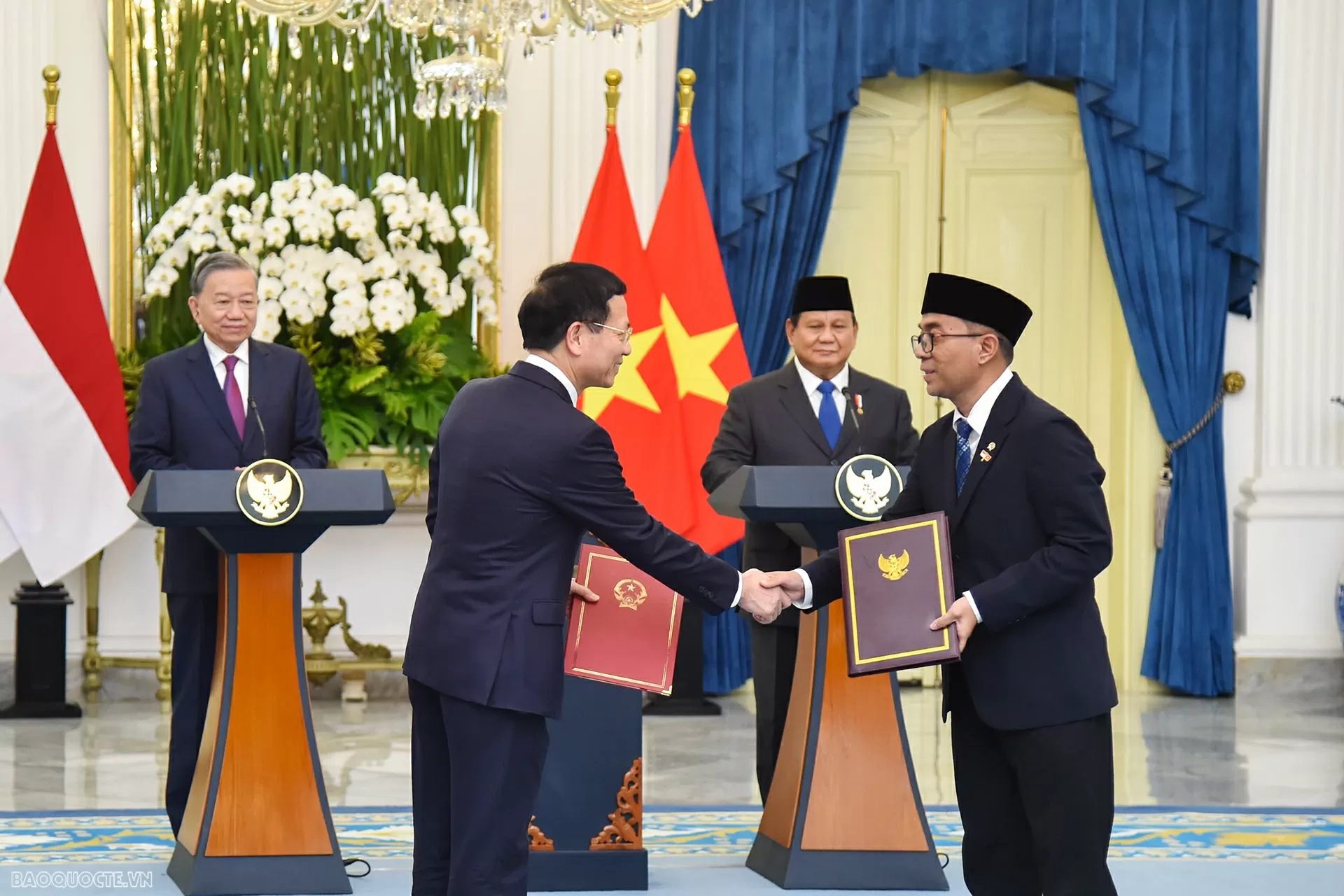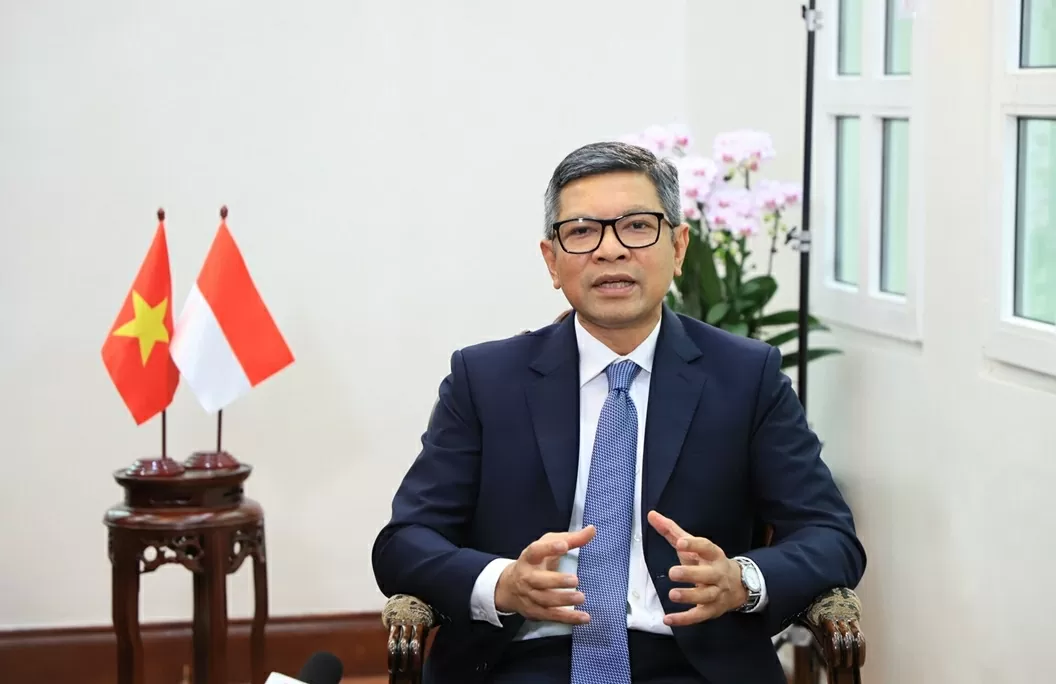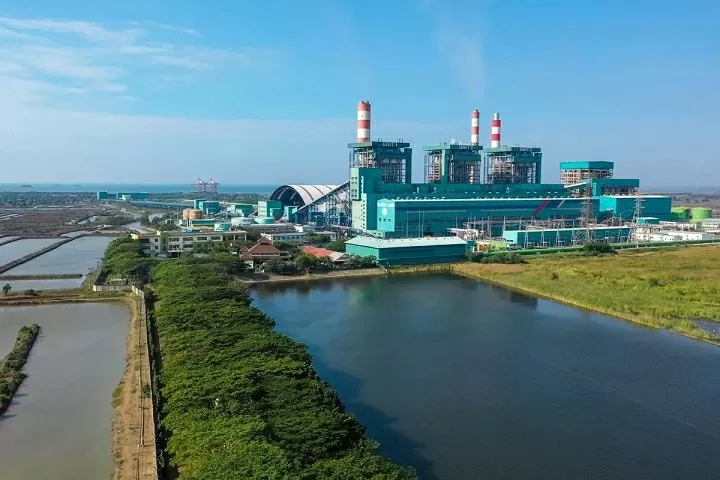
4th P4G Summit marks a significant milestone in advancing global commitments to sustainable development: Indonesian Ambassador
Latest
 |
| Vietnam and Indonesia made several commitments to green cooperation during General Secretary To Lam’s State visit to Indonesia in March, which elevated bilateral relations to the Comprehensive Strategic Partnership. (Photo: Tuan Anh) |
What are your comments on the significance of the 4th P4G Summit and its theme in the current context?
The 4th P4G Summit, hosted by the Government of Vietnam on 16-17 April 2025, serves as a pivotal milestone in advancing the global commitment to sustainable development. Building upon the outcomes of previous summits in Copenhagen (2018), Seoul (2021), and Colombia (2023), I do believe that the 4th P4G Summit continues to foster momentum towards achieving the Sustainable Development Goals (SDGs).
 |
| Indonesian Ambassador to Vietnam Denny Abdi. (Source: Indonesia's embassy in Vietnam) |
The theme of the 4th P4G Summit, "Sustainable and People-Centred Green Transition" reflects a natural progression from the theme of the previous summit: "Transformative Partnerships for Sustainability: Actions Towards Green Growth and Life". The theme in this 4th summit emphasizes inclusivity, sustainability, innovation, and a focus on people - all critical elements for a successful green transition. This focus aligns seamlessly with the SDGs, particularly those related to affordable and clean energy, industry innovation, and sustainable cities and communities.
The urgency of a green transition cannot be overstated. Economic growth should not come at the expense of environmental sustainability. However, UN reports indicate that progress towards the SDGs is significantly lagging, with only 17% of targets currently on track. The 2024 Sustainable Development Goals Report highlights that nearly half of the targets show minimal or moderate progress, and over one-third are stalled or regressing. A major contributing factor to this stagnation is the substantial financing gap; developing countries face an annual shortfall of approximately $4 trillion needed to meet SDG targets by 2030.
This financial deficiency hampers the ability of developing nations to invest in sustainable infrastructure and technologies, thereby slowing the global transition to a green economy. The 4th P4G Summit addresses this challenge by providing a platform for developing countries to receive developmental assistance and funding from P4G partners. Such support is crucial for mobilizing the investments needed to drive the green transition and achieve SDGs. Moreover, the summit's emphasis on innovative partnerships aligns with the call for reforming the international financial architecture to better support sustainable development.
Could you please share with us the Vietnam’s efforts in organizing the P4G Summit, also in addressing common challenges and contributing to the UN’ key priorities in promoting sustainable development?
I highly appreciate Vietnam's efforts in hosting the 4th P4G Summit, as this highlights the country's strong commitment to supporting the green transition and promoting sustainable economic growth.
Vietnam is one of the few countries that has demonstrated rapid and consistent economic growth, even in the context of global challenges caused by the COVID-19 pandemic. This resilience not only reflects Vietnam's dynamic approach to development but also highlights its ability to balance economic progress with sustainability.
With the policy of not sacrificing progress, social equity and the environment to pursue economic growth alone, Vietnam has taken concrete steps such as issuing policies to respond to climate change, reduce emissions, and transition to energy; perfecting policies on management of resources and environmental protection, notably through the revision of the Land Law, the Water Resources Law and the Electricity Law. Vietnam also plans to pilot a carbon credit trading platform in 2025 with the desire to go hand in hand and integrate with the world in the green sector.
Vietnam has demonstrated that developing countries can play an important role in promoting the SDGs; creating a valuable example for other countries around the world.
If we fail to achieve the SDGs, the risks are huge - from worsening food security and escalating climate change, to broader social and economic instability. Vietnam’s active role at the P4G Summit is a testament to its commitment to avoiding these consequences, and its efforts serve as an inspiring global call to action to address the most pressing challenges of our time.
How could Vietnam and Indonesia cooperate in advancing the key pillars of P4G at the bilateral level, within the ASEAN framework, or in other multilateral forums?
As global challenges become more and more complex, Indonesia and Viet Nam must collaborate to ensure that economic progress must align with sustainability, by advancing the key pillars of the P4G initiative.
One of the pillars of the P4G initiative is clean energy. Historically, Indonesia and Viet Nam’s growth have relied on fossil fuels. To transition towards a greener economy, both countries must work together in energy diversification, including developing electric vehicle (EV) ecosystems and implementing the Just Energy Transition Partnership (JETP). Joint investments in renewable energy infrastructure, such as solar and wind power, are also required so both can accelerate their clean energy transition.
Ensuring clean water and sanitation is another key pillar of the P4G that proves to be a challenge for countries that boast large populations. Sustainable urban development is essential to addressing these issues. Collaborative initiatives in waste management, water treatment technologies, can enhance sustainability and resilience against climate change - making our cities more sustainable.
Addressing hunger and promoting responsible consumption are equally critical pillars of the P4G. In Vietnam, approximately 7 million tonnes of food are wasted annually, while the figure stands at around 14.7 million tonnes each year for Indonesia. This results in substantial economic losses, negative environmental impacts, and threatens food security. Joint policies promoting food redistribution and responsible consumption can reduce waste and improve food security as a whole.
As two of the largest populations in ASEAN, development and progress in Indonesia and Vietnam will significantly influence the region. Hence both countries should lead regional cooperation in sustainable development. By strengthening multilateral partnerships and leveraging international support, both nations can set a precedent for economic growth that is both inclusive and environmentally responsible.
 |
| Lontar Steam Power Plant located in Tangerang District, Banten, won the Subroto Award 2024 for contributions to emission reduction. (Source: Antara) |
Could you please share Indonesia’s best practices and policies in promoting climate change mitigation, renewable energy with inclusive, people-centered approaches?
Indonesia has continuously and consistently developed various policies to bolster efforts in achieving sustainable development goals. Yet I would like to highlight one program that should be promoted more - mangrove planting.
On the sidelines of the G20 Summit meeting in Nusa Dua, Bali, Indonesia’s 7th President Joko Widodo invited global leaders to a mangrove planting event at the Taman Hutan Raya (Tahura) Ngurah Rai Mangrove Forest, which symbolizes Indonesia’s commitment in tackling climate change.
Indonesia is home to the largest and most diverse mangrove ecosystems in the world. Mangroves play a critical role in supporting coastal livelihoods, protecting coasts from disasters, storing carbon and mitigating global climate change. Recognizing this essential value, the government of Indonesia has incentivized local communities to plant mangroves, including through the Mangrove One Map, which maps the extent and quality of mangroves throughout the country. The program really works and it has changed the lives of many locals. Mangrove planting has increased fish farm yields and reduced costs, increasing fishers’ profits.
A recent study featured by the World Bank reported that blue carbon projects, which store carbon in coastal vegetated ecosystems such as mangrove forests, are gaining prominence as a key natural climate solution. The study further underlined that Indonesia and Vietnam are among the top three countries with the largest potential in developing blue carbon projects, measured through financial viability and the extent of mangrove stocks. This underlines the huge foundation for both countries to collaborate, which will also pave the way to emerging new opportunities, such as in the development of carbon credit projects.












